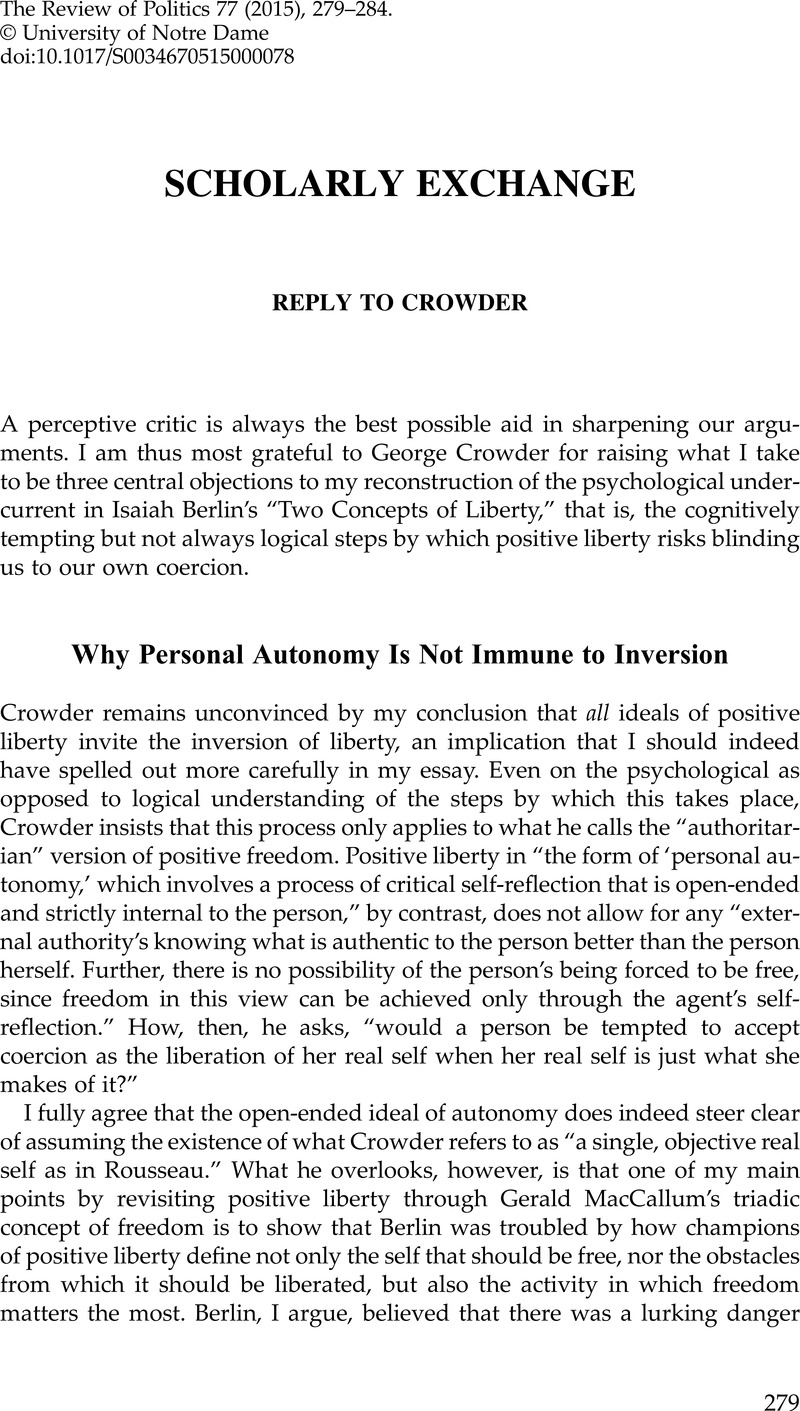Article contents
Abstract

- Type
- Scholarly Exchange
- Information
- Copyright
- Copyright © University of Notre Dame 2015
References
11 Unless otherwise stated, all page references in the following refer to my original essay.
12 Anna Elisabetta Galeotti, “Autonomy and Cultural Practices: The Risk of Double Standards,” European Journal of Political Theory (published online 7 September 2014): 2, 14–15.
13 André Gerin and Éric Raoult, Document no. 2262, Rapport d'information au nom de la mission d'information sur la pratique du port du voile intégral sur le territoire national, Assemblée Nationale, 29 January 2010, 46–48 and 93. For an overview of previous research on motives behind full veils, see Shirazi, Faegheh and Mishra, Smeeta, “Young Muslim Women on the Face Veil (Niqab): A Tool of Resistance in Europe but Rejected in the United States,” International Journal of Cultural Studies 13 (2010): 43–62CrossRefGoogle Scholar.
14 Gina Gustavsson, “A Romantic Reading of the French ‘Burqa Ban’: Liberty as Self-Expression and the Symbolism of Uncovered Faces in the French Debate on Full Veils,” Confluence: Online Journal of World Philosophies 2 (forthcoming in March 2015).
15 A. Chrisafis, “Nicolas Sarkozy Says Islamic Veils Are not Welcome in France,” The Guardian, 22 June 2009, http://www.theguardian.com/world/2009/jun/22/islamic-veils-sarkozy-speech-france; Gerin and Raoult, Document no. 2262, 87.
16 Cf. Eoin Daly, “Laïcité, gender equality and the politics of non-domination,” European Journal of Political Theory (published online 5 September 2014): 6–7, 10–11; Baehr, Peter and Gordon, Daniel, “From the Headscarf to the Burqa: The Role of Social Theorists in Shaping Laws against the Veil,” Economy and Society 42, no. 2 (2013): 265CrossRefGoogle Scholar.
17 This is further elaborated on in Gustavsson, “A Romantic Reading of the French ‘Burqa Ban.’”
- 1
- Cited by




